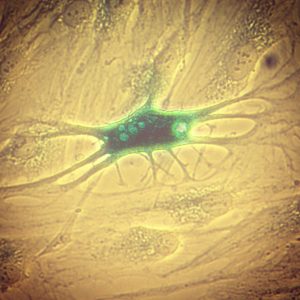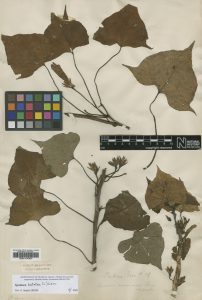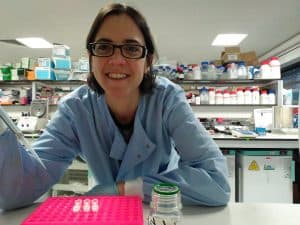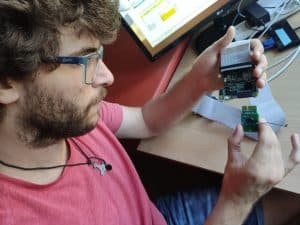
A study led by the University of Manchester (United Kingdom) has found new insights about human blood generation from an early hemogenic endothelium (HE) – a transient precursor of all blood cells.
The generation of HE from human embryonic stem cells (hESCs) provides an invaluable platform to study and dissect blood specification and the emergence of blood stem and progenitor cells. Only a perfect understanding of this differentiation process will lead to the generation of usable blood cells in the clinic for therapeutic purpose -,the aim in stem cell and regenerative medicine fields.
This project led by Dr. Valerie Kouskoff and whose first author has been the Basque country researcher Eva García-Alegría, provides detailed analysis of the earliest steps of HE commitment from hESC. The study unequivocally demonstrates that both primitive and definitive blood precursors are specified very early during differentiation and that CD31 expression remains associated with definitive blood progenitors. This work will be publish at the prestigious journal Stem Cell Reports in November 2018-.
The authors describe how the potential of this specialized endothelium to generate blood cells sharply declines over the course of hESCs differentiation. That way, they point out the relevance of timing, an important factor never addressed before in relation with this endothelium. Furthermore, they show that the dynamic expression of different markers is described at the onset of the blood specification. This allows to define 3 blood progenitors’ populations whose potential is linked to the expression of the endothelial marker CD31.

Importantly, little was known about the role of CD31 in the blood differentiation of hESC -. beside this marker had been previously reported to be expressed in different blood precursors and stem cells in mouse and human tissues. This study links the loss of this marker to cells with restricted erythroid lineage potential. In the other hand,cells retaining CD31 expression have the ability to generate all different blood types, including T lymphocyte in culture.
According to Kouskoff,“this research furthers our understanding toward the generation of blood progenitor cells with ability to generate different types of blood cells, bringing us a step closer to defining how they emerge, specify and maturate”
Dr Garcia-Alegria said: “This study allows following the emergence of different blood progenitors in culture, improving our knowledge about those subsets with potential to generate T lymphocytes, considered a feature of definitive haematopoiesis. It is still early to see if this population contains stem cells with ability to reconstitute the blood system after transplantation but it’s an exciting contribution that links the loss of CD31 expression to the restriction in the hematopoietic potential”.
The study, entitled “Early human hemogenic endothelium generates primitive and definitive hematopoiesis in vitro” will be published in Stem Cell Reports Journal on 13th November 2018. Authors are Eva Garcia-Alegria, Sara Menegatti, Muhammad ZH Fadlullah, Pablo Menendez, Georges Lacaud and Valerie Kouskoff.
The work is supported by Medical Research Council, the Biotechnology and Biological Sciences Research Council, Bloodwise, the European Union’s Horizon 2020 and Cancer Research UK.






